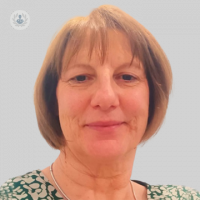Menopause: 9 important questions answered
Written in association with:Menopause is a stage of life that every woman goes through, but is not one that most look forward to. To help you prepare for this stage of life, leading consultant obstetrician and gynaecologist Ms Sharon Griffin answers some of the most commonly-asked questions.

1. What is menopause?
Menopause is the time in a woman’s life when periods stop. As women age, their storage of eggs slowly runs out, the ability to reproduce is lost and hormone levels change. For some women, going through these changes can be unsettling, where some women go through the menopause with no problems at all.
2. What are the symptoms of menopause?
Menopause, and the changes in hormones that it brings can affect women in different ways. The most common symptoms are hot flushes and night sweats. Some women can develop depression, others feel tired and have a lack of energy, and weight gain is also common. A reduced interest in sex, and vaginal dryness are also symptoms commonly reported. If you are concerned about your hormone levels, book an appointment with a consultant endocrinologist.
3. What age does menopause start?
The average age in the UK that menopause starts is 52, however it is usual to start at any age between 45 and 55. Menopause before the age of 40 is considered an early menopause. For more information, you can book an appointment with a menopause specialist.
4. Why do periods stop?
It is thought that periods stop naturally to protect women and their children from the dangers of late child bearing. In the period leading up to the menopause, women can experience irregular menstruation. Menopause has begun when you have gone one year without a period.
5. When does menopause stop?
Medically, the stage of menopause lasts for 12 months, after which women enter the postmenopause stage. The symptoms of menopause can continue for a long time during the postmenopause stage. In total, the three stages of menopause: perimenopause, menopause, postmenopause can last for up to 10 years.
6. When is it safe to stop contraception?
Women can still get pregnant at any time during the perimenopausal stage, and women in this stage have the highest rates of unplanned pregnancy of any age group, equalling that of the under 16 age group. You can still get pregnant right up until you reach menopause, so be careful to take precautions. Your doctor can confirm at which stage of menopause you are at.
7. Is weight gain inevitable?
Due to changes in hormones during menopause, weight gain is common. The body may develop a hormonal imbalance, and may try to protect itself by storing fat. However, despite these changes, women can still achieve a healthy weight. Through healthy eating and regular exercise, and lowering the carbohydrate intake, a healthy weight can be maintained, and energy levels kept high.
8. What causes hot flushes?

Hot flushes are the most commonly experienced symptom for women going through menopause. Hot flushes are the sudden feeling of heat, sweating, palpitations and blushing that spreads through the body and lasts for several minutes. Some people only experience a few hot flushes, where others experience many a day. They are caused by hormone changes in the body, but there are a number of known triggers, such as: hot clothing, feeling stressed, drinking alcohol or coffee, eating spicy food and smoking.
9. How is the menopause treated?
The most common treatment for the symptoms of menopause is Hormone Replacement Therapy (HRT). Taking oestrogen and progesterone is considered a gold standard treatment for women with hot flushes and sweats. The treatment is also used for the treatment of postmenopausal osteoporosis, and can help prevent fractures later in life. You should see a consultant endocrinologist for more information on HRT treatment.
If you're looking for expert medical attention for menopause, arrange an appointment with Ms Griffin via her Top Doctors profile.


